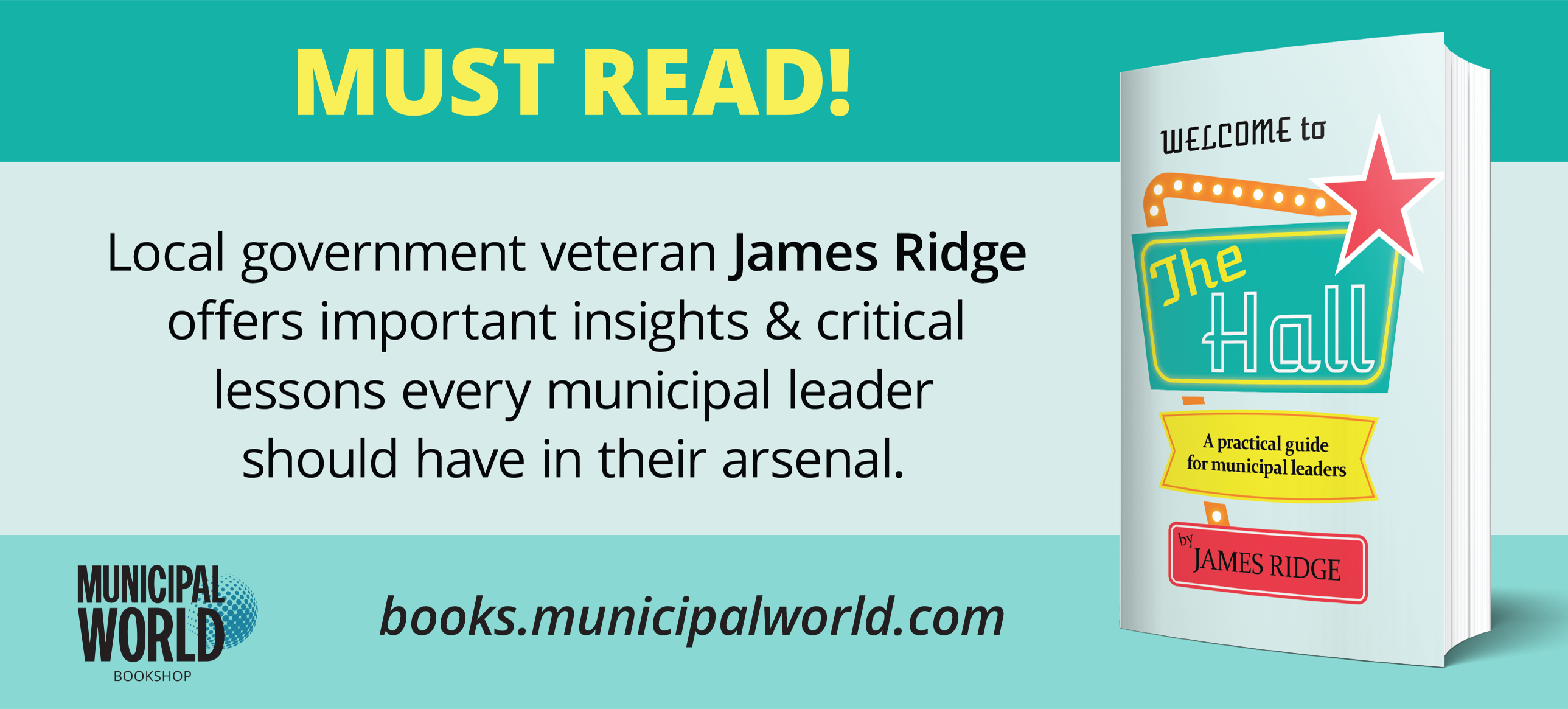Breaking through the municipal glass ceiling

How deliberate systems of support can help remove barriers for women in local government
In 1990, the United Nations Economic and Social Council passed a resolution to adopt a 30 percent minimum proportion of women in leadership positions, including municipal government. According to the United Nations, if government does not meet this threshold, its public policies can’t be trusted to reflect women’s concerns. Integrating women’s perspectives into all levels of decision making is critical to a healthy, just, and equitable political system.
Unfortunately, Canada’s commitments to this resolution remain unfulfilled.
In both the federal and municipal orders of government, only 26 percent of elected representatives are women. Among Canada’s mayors, that number stands at just 18 percent. Also, visible minorities only make up two percent of these elected officials. With women making up approximately 52 percent of the population, these figures demonstrate a concerning lack of representation.
Although there is still much work to do to reach that 30 percent threshold, the executive of the newly elected board of governors for the Federation of Canadian Municipalities (FCM) is now 60 percent female. FCM members are walking the talk.
Bias in the System
There are significant systemic barriers preventing women from holding public office. Attitudes toward women in politics are entrenched at an early age. Even once women begin to consider running for public office, many women face doubts about their own potential and may feel they lack the understanding of how to get elected. Also, for many girls, running for elected office was never presented as an option. This, in turn, has caused politics to appear as an exclusive club to those not currently represented in it. So, a new focus is being created to make politics more accessible, inclusive, and representative of the general population.
FCM’s Getting to 30% project assessed the challenges faced by women once they have made the decision to run. Women candidates expressed challenges around assertiveness, with many downplaying their strengths for fear of being labelled as aggressive or shrill. Women also noted the challenges of fundraising and the differential access they had to networks of support, particularly in the business community. These challenges clearly reflect both how societal expectations of how women ought to behave, as well as systemic challenges in differential access to resources and power, have impacted on women’s participation in public life.
One critical strategy is to encourage girls and young women from diverse communities to run for political office at an early age. Girls and young women must see themselves reflected in our government institutions in order to see that elected office is a place for everyone. Without a diversity of voices, our politics and policies are missing a valuable perspective.
More often than not, support and encouragement from family and friends is an essential factor that leads women to start believing they can – and should – run. While family support is critical, meaningful and strategic processes must be in place to foster that encouragement and increase the participation of women. Without a doubt, this includes access to training, financial support, and providing safe spaces so women can prepare to run for office.
FCM: Building Support Systems
As with any job, training is required. In local government, that training consists of campaign schools, speechwriting training, public engagement, access to mentors and sponsors, and learning how to articulate your ideas to a public audience.
There also needs to be safe spaces where women can learn the skills they will need to run. These safe spaces need to be encouraging, nurturing, and welcoming; a place where women don’t feel like they have to ask permission to be at the table; and a place where they can freely ask questions and learn. However, these spaces can be hard to find, and creating them requires careful and intentional effort.
FCM has been actively targeting barriers to women’s participation in municipal politics. As part of this effort, FCM maintains a network of over 50 regional champions across the country to promote women’s engagement in municipal elections and mentor candidates. They also operate programs directly aimed at increasing women’s representation in local government.
The Diverse Voices for Change program provides tools to help municipalities engage with under-represented women to build a more inclusive decision-making system. Diverse Voices for Change is about bringing new voices to the table and acknowledging that these voices have perspectives that can benefit and enrich our politics and policies. With pilot offices in Edmonton, Halifax, London, Montréal, and Sioux Lookout, the program is working to implement strategies, recommendations, policies, and procedures to strengthen the voice of women from diverse communities.
FCM also has a Standing Committee on Increasing Women’s Participation in Municipal Government with a goal of seeking and supporting initiatives to increase women’s political participation in municipal government. The committee is made up of 24 elected municipal leaders who are working to ensure that women will make up 50 percent of municipal councils by 2026.
At every annual conference, the FCM presents the Ann MacLean Award for Outstanding Service by a Woman in Municipal Politics. This award is named in honour of former FCM President Ann MacLean, who led a campaign to increase the number of women in municipal politics across Canada. The award recognizes retired women municipal politicians who have mentored other women interested in running for elected office and who have displayed a career of dedicated service to their community.
FCM also offers the Canadian Women in Municipal Government Scholarship for women who are interested in taking an active role in municipal government. The scholarships are open to female students who are contributing to their school’s leadership team or student council, and encourage young women to get involved in local government.
FCM is engaging in meaningful collaboration with women’s organizations at the national, regional, and local levels. Across the country, there is potential to build a critical mass to engage more women in politics. Achieving parity isn’t just the right thing to do … it will also make our communities – and our country – so much stronger. MW
Yolaine Kirlew is Councillor of the Municipality of Sioux Lookout and Third Vice President of the Federation of Canadian Municipalities – the national voice of municipal government, with nearly 2,000 members representing 90 percent of Canadians.
as published in Municipal World, October 2018



